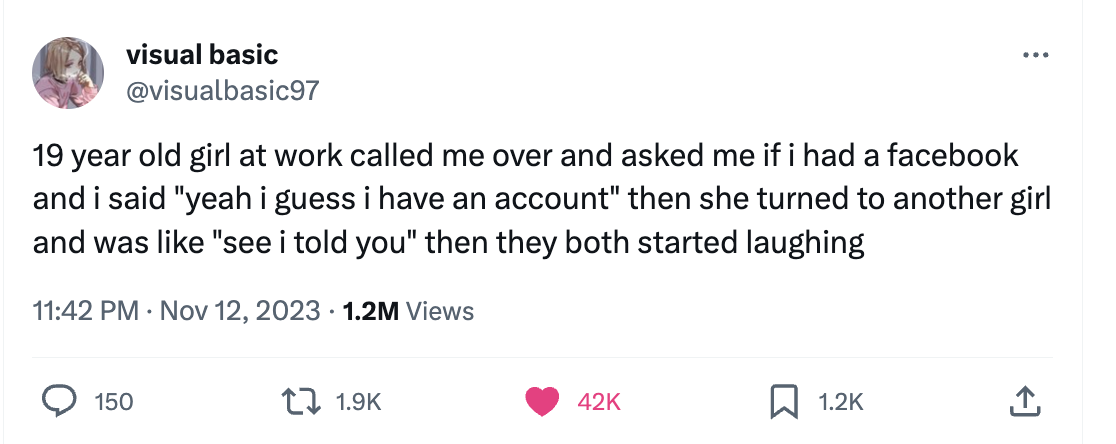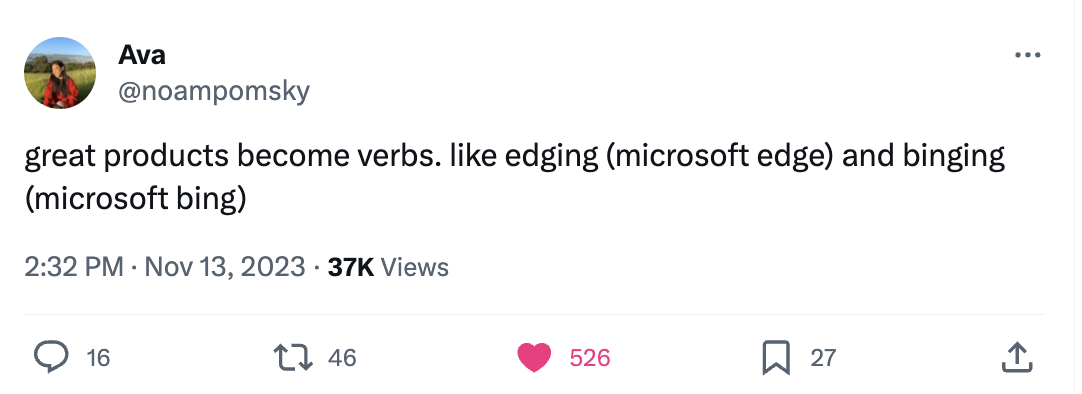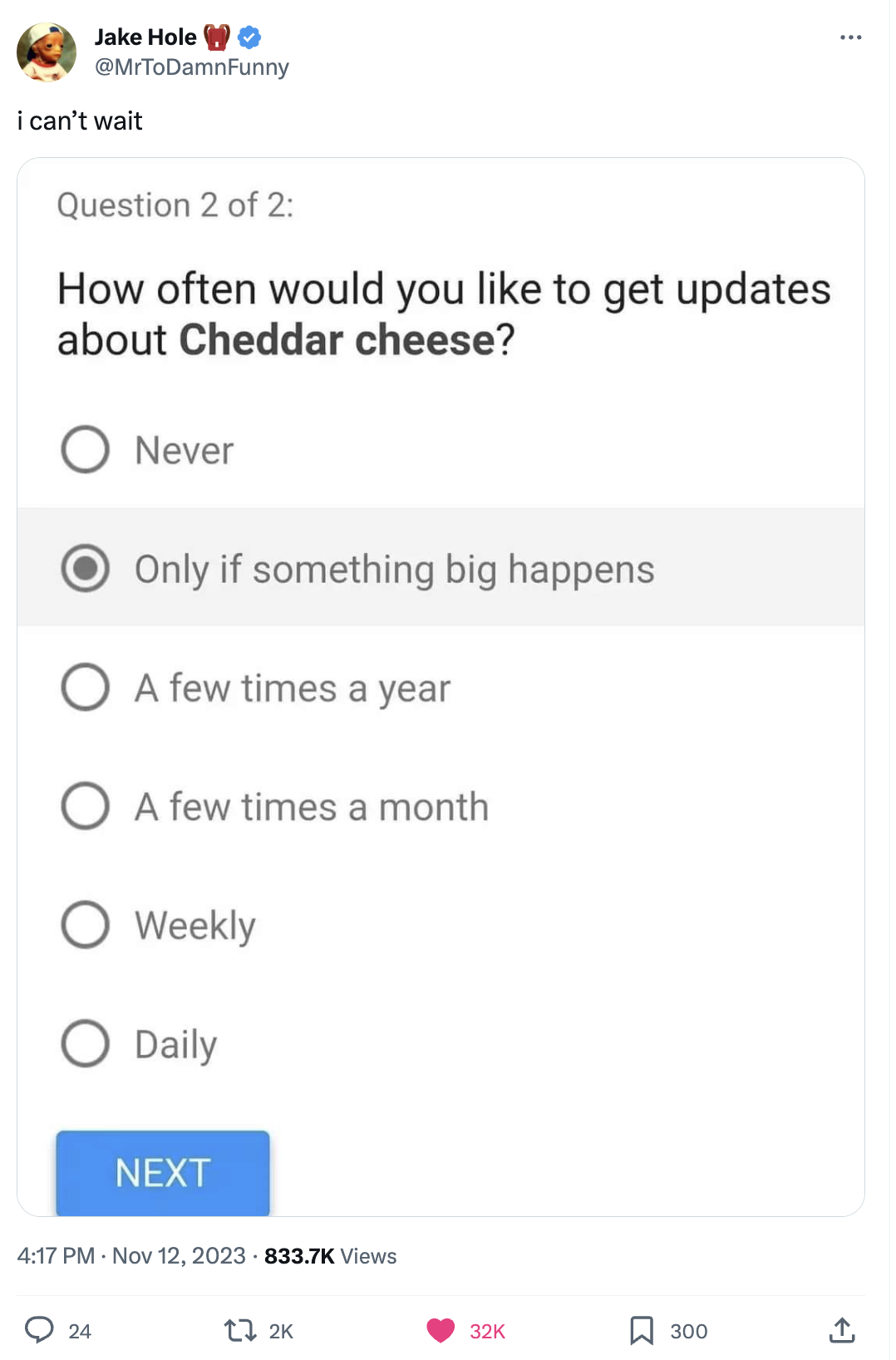How banning one Palestinian slogan roiled Etsy
The company secretly banned the phrase “from the river to the sea” on sellers’ wares. Some employees aren’t happy

Today, let’s talk about a controversial decision inside Etsy to restrict the sale of merchandise with a slogan associated with support for Palestine — and one that many people associate with violent antisemitism. Internal conversations obtained by Platformer highlight how platforms are struggling to develop clear, consistent policies related to the Israel-Palestine conflict — and to manage employees’ feelings as those policies come to light.
On November 2, at an all-company meeting known internally as a “Y’All Hands,” an Etsy employee asked why the platform had restricted sales of merchandise containing the phrase “from the river to the sea.”
It’s a complicated question.
The New York Times dates usage of the phrase to the 1960s, reflecting the desire of Palestinians to reclaim their former land between the Jordan River and the Mediterranean Sea. Today Palestinians and their allies use it both to express “their desire for a right of return to the towns and villages from which their families were expelled in 1948, as well as their hope for an independent Palestinian state, incorporating the West Bank, which abuts the Jordan River, and the Gaza Strip, which hugs the coastline of the Mediterranean,” write the Times’ Karoun Demirjian and Liam Stack.
At the same time, the phrase also appears in the revised 2017 platform of Hamas, the group responsible for the October 7 attacks that killed more than 1,400 Israelis. (The Times notes that the same platform also states that Hamas “could accept a Palestinian state along the borders that were in place before the 1967 war — the same borders considered under the Oslo Accords.”) The Anti-Defamation League, which fights against anti-semitism and discrimination, calls “from the river to the sea” “an antisemitic slogan” that “has the effect of making members of the Jewish and pro-Israel community feel unsafe and ostracized.”
Last week, the US House of Representatives voted 234 to 188 to censure Rep. Rashida Tlaib (D-MI), the only Palestinian-American member of Congress, citing her use of the phrase in their remarks.
As debate continues to rage over the ongoing bloodshed — more than 11,000 Palestinians have been killed since Israel’s military response began, according to Gaza’s Health Ministry — platform policy teams have been confronted with a dilemma. To one group, “from the river to the sea” represents a call for liberty, dignity, and self-determination. To another, it is interpreted as an antisemitic call to annihilate Israel.
In their remarks to employees, Etsy executives highlighted these tensions.
“We know that many people use this phrase with genuine intent and without any violent meaning,” a policy executive told employees in a recording of the meeting viewed by Platformer. “However, it was determined that it violates Etsy’s prohibited items policy for a couple of reasons.”
The first reason was the phrase’s “co-optation by Hamas, which we classify as a dangerous group under our policies,” the executive said. “We also see instances where the phrase has been used alongside celebration or glorification of the Hamas attacks on Israeli civilians.”
Another reason for the decision was more specific to Etsy. On platforms like YouTube and Instagram, where “from the river to the sea” appears in countless videos and creator bios, the nature of the medium gives moderators more context around how the phrase is being used. Watching a video can make it clear whether a user is simply declaring support for the people of Gaza or calling for the end of Israel.
Etsy, on the other hand, is a place for physical goods. The commentary there rarely exceeds the length of a bumper sticker — in fact, Etsy does a brisk business in bumper stickers. Whatever a merchant’s feelings might be about the war, they likely will not be apparent on a slogan-branded coffee mug.
“At Etsy, our priority is keeping our global marketplace safe while embracing a range of perspectives and opinions,” the company told me in a statement. “We recognize that certain topics may be interpreted to mean different things to different groups. In these nuanced cases, we consult industry standards, academic resources, government regulations, and trusted experts across the ideological spectrum to help inform our decisions and take a consistent, objective approach to policy enforcement.”
It also noted that thousands of pro-Palestine products are still available for sale on the platform. A quick search turned up many items bearing the slogan “resistance until reclamation,” for example, and others with “stop the genocide.”
At the same time, the company’s description of its policies elides the fact that merchandise containing the phrase “from the river, to the sea” was permitted on Etsy before the Oct. 7 attacks. It was banned afterward under the company’s prohibited items policy, which includes a prohibition against “items that support, promote, or glorify violence.”
The company told me that the context around the phrase changed after the attacks, and its enforcement changed accordingly. It then notified sellers that their wares now violated the policy. Etsy made no public announcement about the change. Employees only learned about the update after seeing merchants complaining on social media about their products being removed.
In response, some employees complained internally that the policy does not seem to apply in all cases. A policy team decided to leave up a shirt with the Israeli flag bearing the slogan “These colors don’t run, they reload,” for example, generating internal confusion.
Tech companies have not reached a consensus about what place, if any, “from the river to the sea” should have on their platforms. The phrase can be found widely across Facebook, Instagram, YouTube, and TikTok. (TikTok is currently under fire by some members of Congress because the number of videos with the #freepalestine hashtag outnumber those with #standwithisrael.)
I’m told items with the phrase have been banned or heavily restricted on Amazon; the company declined to tell me what its policy is when I asked today. (I couldn’t find any obvious “from the river to the sea” merchandise on the platform, though Fox Business says it did.) eBay also appears to have restricted merchandise with the phrase, though it did not respond to a request for comment.
There is a history of platforms changing their policies around certain words and phrases as the context around them changes. “Save the children,” once among the most innocuous expressions imaginable, took on a new cast when it became a rallying cry for QAnon. (Facebook temporarily blocked the hashtag as a result.)
Just because a phrase has been co-opted, though, doesn’t mean platforms have to ban its use outright. Yoel Roth, former head of trust and safety at Twitter, told me that during his time there the platform worked not to ban phrases and hashtags outright. Instead, it looked for additional context.
“You can get a decent signal in these cases by looking at an account’s longer-term behavior,” Roth told me. “Have they posted potentially dangerous content before? Do they have prior abuse strikes? Are they repeatedly posting borderline/questionable phrases? Do they have multiple accounts doing weird stuff? Do they get reported a lot?”
The idea, he told me, is to “combine content signals with behavioral signals.”
Another idea, one Etsy employee told me, is to make policy decisions in public, and to disclose those decisions when the company does. The company’s top complaint from sellers is that they don’t understand why the company has removed their items from sale, I’m told.
“While we have some legal reasons for not disclosing certain enforcement information,” the employee said, “for many cases, being transparent about our enforcement would do more good than harm.”

In case you missed it, this exchange from Friday’s episode with FTC Chair Lina Khan made the rounds on social media all weekend. Listen to the episode here.
Kevin Roose: All right. Last question — this is something that we ask many podcast guests. What is your P doom, Lina Khan? What is your probability that AI will kill us all?
Lina Khan: Ah, I have to stay an optimist on this one. So I’m going to hedge on the side of lower risk there.
Roose: So are you zero?
Lina Khan: No, no, not zero. Maybe, like, 15 percent.
Casey Newton: And they say there are no techno-optimists in the government.
Governing
- Epic v. Google: Documents and testimony showed that Google offered Netflix a special discounted rate of sharing only 10 percent of its in-app payments on Android back in 2017. Netflix declined, though, projecting that it would still lose money. (Sean Hollister / The Verge)
- Google v. DOJ: Apple makes 36 percent of the revenue Google earns from search advertising made through the Safari browser, Alphabet’s economic expert testified. The number was supposed to remain confidential. But I’m glad it didn’t! (Leah Nylen / Bloomberg)
- Google filed a lawsuit against unnamed individuals in India and Vietnam, alleging that scammers are tricking US small businesses into clicking Facebook ads to download Bard and hitting them with malware that steals social media information. (John D. McKinnon / The Wall Street Journal)
- Omegle, the online chat service, shut down. While its founder blamed the stress and expense of operating it, others are pointing out that the service had major issues with child exploitation. (Katie Notopoulos / Insider)
- A lawsuit by a then-underage plaintiff alleging a man in his thirties forced her to take nude photos and videos over a three-year period was settled a week before the shutdown prior. Omegle’s permanent shutdown was required by the settlement, the plaintiff’s attorney said. (Amanda Hoover / WIRED)
- A coalition of tech companies, federal agencies, election officials, and researchers aiming to fight foreign propaganda and ensure election integrity has been stymied by repeated attacks from members of the Republican party. (Kevin Collier and Ken Dilanian / NBC News)
- The SAG-AFTRA deal that ended the strikes includes protections against the use of AI, including consent and compensation for making digital replicas of actors and disclosure on what the replicas are used for, along with guidelines for synthetic fakes. (Charisma Madarang, Kalia Richardson and Krystie Lee Yandoli / Rolling Stone)
- Apple is set to dispute a decision under the European Digital Markets Act that included the App Store under new digital antitrust rules, as well as challenge regulatory scrutiny of iMessage. (Samuel Stolton and Stephanie Bodoni / Bloomberg)
- X only has a fraction of the content moderators that Google and TikTok do in the EU, and regulators say they hope X will feel the pressure to catch up. I’m afraid I have some bad news for regulators! (Foo Yun Chee and Supantha Mukherjee / Reuters)
- A new tool from Google’s Jigsaw unit, Altitude, aims to help smaller online platforms detect and remove terrorist content by connecting platforms to a shared database of context and information about moderation decisions. (David Gilbert / WIRED)
- AI companies including OpenAI and Anthropic have joined the Christchurch Call to Action, a project to suppress terrorist content, started by French president Emmanuel Macron and then-New Zealand prime minister Jacinda Ardern. (Ryan Heath / Axios)
- AI chatbots may someday help bad actors build bioweapons, making product guardrails a necessity. (Steph Batalis / Foreign Policy)
- Employees at Meta are divided internally over the company’s child safety responsibilities after it lowered the minimum age for Quest users from 13 to 10. (Kalley Huang and Sylvia Varnham O’Regan / The Information)
Industry
- Users can now delete Threads profiles without having to delete their Instagram accounts, Instagram head Adam Mosseri said. (Jay Peters / The Verge)
- Threads users can now opt out of having their posts displayed on Instagram and Facebook in the “For You on Threads” carousel. (Wes Davis / The Verge)
- Tumblr is restructuring its divisions after failing to reach revenue and usage above previous peaks, according to a leaked internal memo, with majority of the 139-person team switching to other divisions. (Adi Robertson / The Verge)
- Some TikTok creators in the UK are coordinating a blackout on the app to pressure the company to drop a creator, Anthony Ekpenyong, who was convicted of rape in September, from its creator management program. (Emily Baker-White / Forbes)
- Google is reportedly in discussions to invest hundreds of millions in Character.AI, an AI chatbot startup, to help train its models. (Krystal Hu / Reuters)
- OpenAI is courting top Google employees with $10 million pay packages and promising more access to computing resources for researchers. (Jon Victor / The Information)
- OpenAI announced Data Partnerships, an effort to work with organizations to train AI on public and private data sets, to minimize biases and flaws. (Kyle Wiggers / TechCrunch)
- OpenAI CEO Sam Altman says plans to secure more funding from Microsoft to invest in his vision of an artificial general intelligence. (Madhumita Murgia / Financial Times)
- Microsoft briefly restricted employee access to ChatGPT, according to an update posted internally, due to security and data concerns. Microsoft later stated the block was a mistake. (Jordan Novet / CNBC)
- Meta has reportedly made a preliminary deal with Tencent Holdings to sell a lower-priced version of its VR headset in China, 14 years after Facebook was shut out of the country. (Raffaele Huang, Liza Lin and Salvador Rodriguez / The Wall Street Journal)
- WhatsApp is introducing a voice chat feature for large groups that is less disruptive than a group call, letting users join with an in-chat bubble instead of ringing all members of the group. (Aisha Malik / TechCrunch)
- Amazon and Meta are partnering up and testing a feature that would let shoppers buy Amazon products directly from ads on Instagram and Facebook. (Spencer Soper and Aisha Counts / Bloomberg)
- The new Spatial Video camera feature on the iPhone 15 Pro allows users to record 3D videos that can be played back on the Vision Pro, and it looks amazing, according to this review. (Scott Stein / CNET)
- Lidiane Jones is taking over as Bumble’s CEO during a difficult time, as shares of the company have slipped 80 percent since its IPO. But Jones has plans for global expansion, and — of course — AI. (Hannah Murphy / Financial Times)
Those good posts
For more good posts every day, follow Casey’s Instagram stories.

(Link)

(Link)

(Link)
Talk to us
Send us tips, comments, questions, and secretly banned phrases: casey@platformer.news and zoe@platformer.news.





